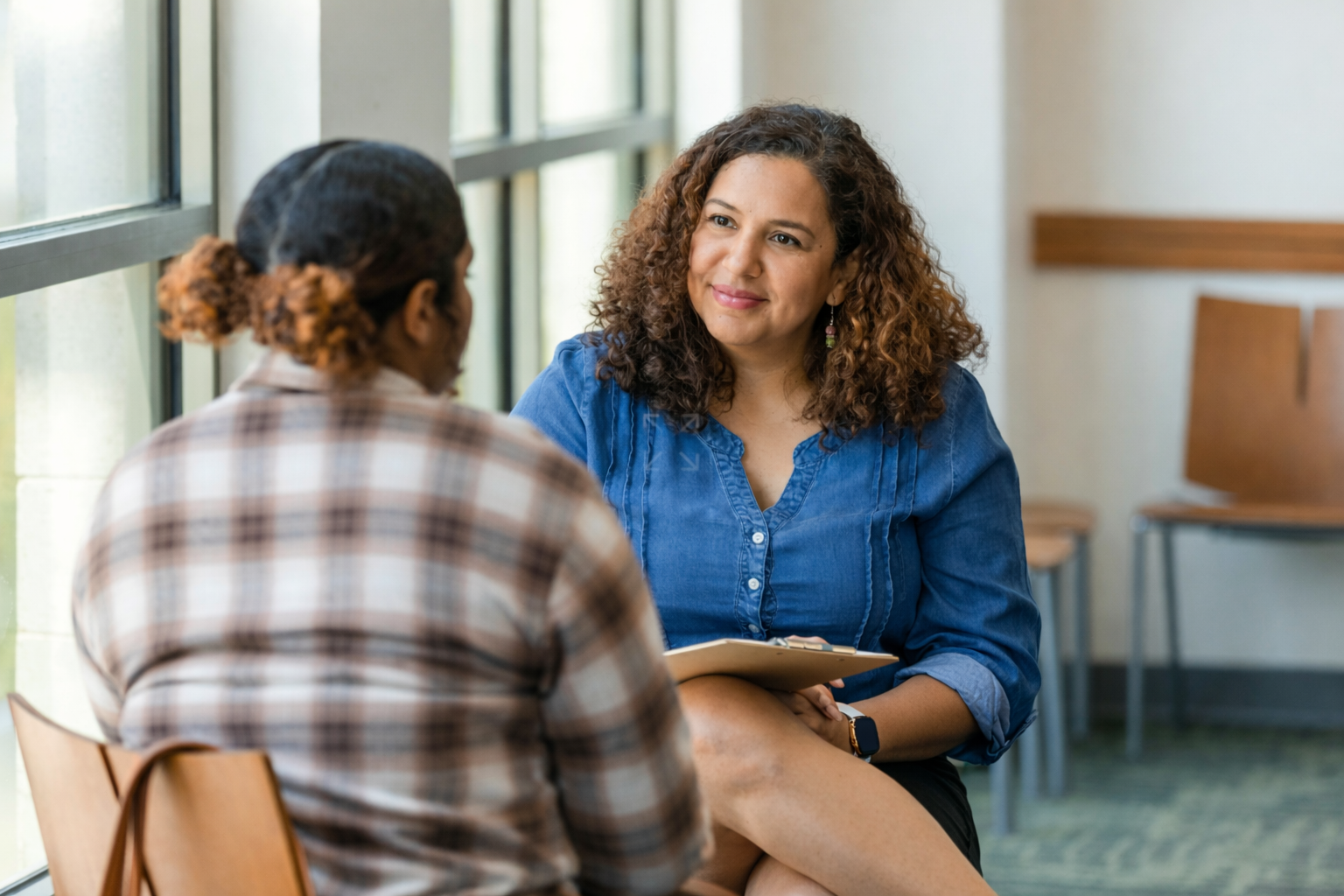Counselling, Therapy and Friendship: How They Differ and Why We Need Both
Human beings are social by nature and thrive when they feel connected and understood. Friendships often provide our first line of support during tough times; we vent to friends after a bad day, celebrate successes together and share secrets. But when emotional struggles deepen or circumstances become overwhelming, friends might not have the experience or capacity to provide the kind of support you need. That's where professional counselling comes in.
Professional counselling is not a replacement for friendship, nor is friendship a substitute for therapy. Both play vital roles in mental health and overall well-being. Understanding how they differ and how they can complement each other, can help you build a balanced support network that meets your needs.
The Unique Power of Friendship
Friendships enrich our lives in countless ways:
Emotional support: Friends offer empathy, validation and a listening ear. Feeling heard by someone who cares can reduce stress and loneliness.
Shared experiences: Whether it's a hobby, a shared history or a life stage, shared experiences create connection. Friends "get" where you’re coming from because they’ve been there too.
Laughter and joy: Friends invite spontaneity and remind us to enjoy life even during hard times.
Identity and belonging: Friendships help us understand ourselves and our place in the world. They affirm our values and reflect back parts of our identity we may not see ourselves.
Practical help: From giving a ride to offering childcare, friends often step in when we need tangible support.
Maintaining friendships strengthens mental health. Studies show that people with strong social networks experience lower rates of depression, anxiety and chronic illness. In times of stress, friends provide immediate comfort and remind us we’re not alone.
Why Friends Can’t Always Replace a Therapist
Despite all they offer, friends typically aren’t trained to help you process complex emotions, trauma or mental health conditions. Here's why counselling is uniquely equipped to help:
Confidentiality and objectivity: Therapists provide a non-judgmental space free from social consequences. You don't have to worry about gossip or altering the dynamics of your social circle. Their feedback is impartial and not influenced by shared history.
Clinical expertise: Counsellors are trained to recognize patterns, diagnose conditions and apply evidence-based approaches to help you heal and grow.
Structured guidance: Therapy sessions encourage exploration, insight and skill-building. A therapist intentionally guides you toward self-discovery and healthy change.
Depth of exploration: You can delve into topics with a therapist that might feel too heavy or repetitive for friends. A counsellor is there specifically to explore your thoughts and feelings, no matter how painful.
Boundaries and focus: Therapists maintain clear boundaries and focus solely on your well-being during your time together. You don't need to worry about reciprocity—therapy is your space.
The Complementary Roles of Friendship and Counselling
Rather than seeing counselling and friendship as either/or, view them as complementary:
Immediate vs. long-term support: Friends provide quick, accessible support. Therapy offers a deeper, ongoing process.
Social connection vs. personal growth: Friendships help you feel connected and valued. Counselling helps you understand yourself, heal past wounds and develop coping skills. Together, they create both external and internal support.
Variety of perspectives: Friends offer insight based on shared experiences. Therapists bring an outsider's perspective grounded in training. Hearing both can broaden your understanding.
Encouraging change: Friends may hesitate to challenge your choices for fear of hurting your feelings. Therapists are skilled at gently confronting unhelpful patterns and helping you develop healthier behaviours.
Reinforcing growth: As you work on yourself in therapy, friends can help reinforce positive changes by practicing new communication skills with you, celebrating your progress and reminding you of your goals.
Benefits of Sharing with a Professional
Whether you’re struggling with anxiety, depression, grief, relationship issues or self-esteem, counselling can make a meaningful difference. Some benefits include:
Increased self-awareness: Therapy helps you recognize patterns, understand emotions and uncover root causes of distress.
Effective coping strategies: Counsellors teach tools to manage stress, regulate emotions and handle triggers.
Healing from trauma: A therapist can guide you through trauma processing in a safe environment, helping reduce symptoms and reclaim a sense of security.
Improved relationships: By learning communication skills and exploring boundaries, you can improve interactions with partners, family and friends.
Personal growth: Therapy encourages you to explore values, set goals and live authentically.
How to Talk to Friends About Mental Health
While friends aren’t therapists, sharing openly about mental health can strengthen your support network. Here are some tips:
Choose the right time and place: Have conversations when you both have privacy and aren’t rushed.
Be honest about your needs: Tell your friend whether you want advice, a listening ear or practical help.
Share feelings, not diagnoses: You don’t need to disclose everything. Focus on how you feel and how your friend can support you.
Set boundaries: If your friend becomes overwhelmed, it doesn’t mean they don’t care. Encourage them to share how they’re feeling and respect their limits.
Reciprocate when possible: While it's okay to need more support at times, remain open to your friend's needs too.
Encourage them to seek help if needed: Mental health can affect anyone. Be supportive if a friend considers counselling.
When to Reach Out to a Counsellor
While friends provide invaluable support, certain signs indicate professional counselling may be beneficial:
Persistent sadness, worry or irritability that doesn’t improve with rest or self-care.
Difficulty functioning at work, school or in relationships due to emotional distress.
Unresolved trauma or painful experiences affecting your daily life.
Loss of interest in activities or relationships that once brought joy.
Major life transitions like divorce, loss, career changes or new parenthood.
Feeling stuck despite efforts to change patterns or behaviours.
Troubled relationships marked by conflict, codependency or repeated issues.
Therapy can provide guidance, tools and a safe place to explore these challenges. You can continue to lean on friends for day-to-day support while working through deeper issues with a counsellor.
Final Thoughts and Transformation Counselling Invitation
Friendship and counselling are both essential to a healthy support system. Friends offer camaraderie, comfort and a sense of belonging; therapists provide expertise, confidentiality and structured growth. Embracing both can help you navigate life’s challenges with resilience and grace.
At Transformation Counselling, we believe mental health care should be accessible and not intimidating. Therapy isn’t about being broken it’s about being human and giving yourself the care you deserve.
If you’re curious about counselling or wondering how therapy could complement the support you receive from friends, we’re here to help. Taking the first step is simple:
Fill out a brief intake form.
Get matched with a therapist who fits your needs.
Choose appointments that work with your schedule online or in person.
Begin building a healthier, more balanced support system with professional guidance.
You deserve support that meets all aspects of your well-being. Book an appointment with Transformation Counselling today, and let’s work together on your journey toward connection and growth.










